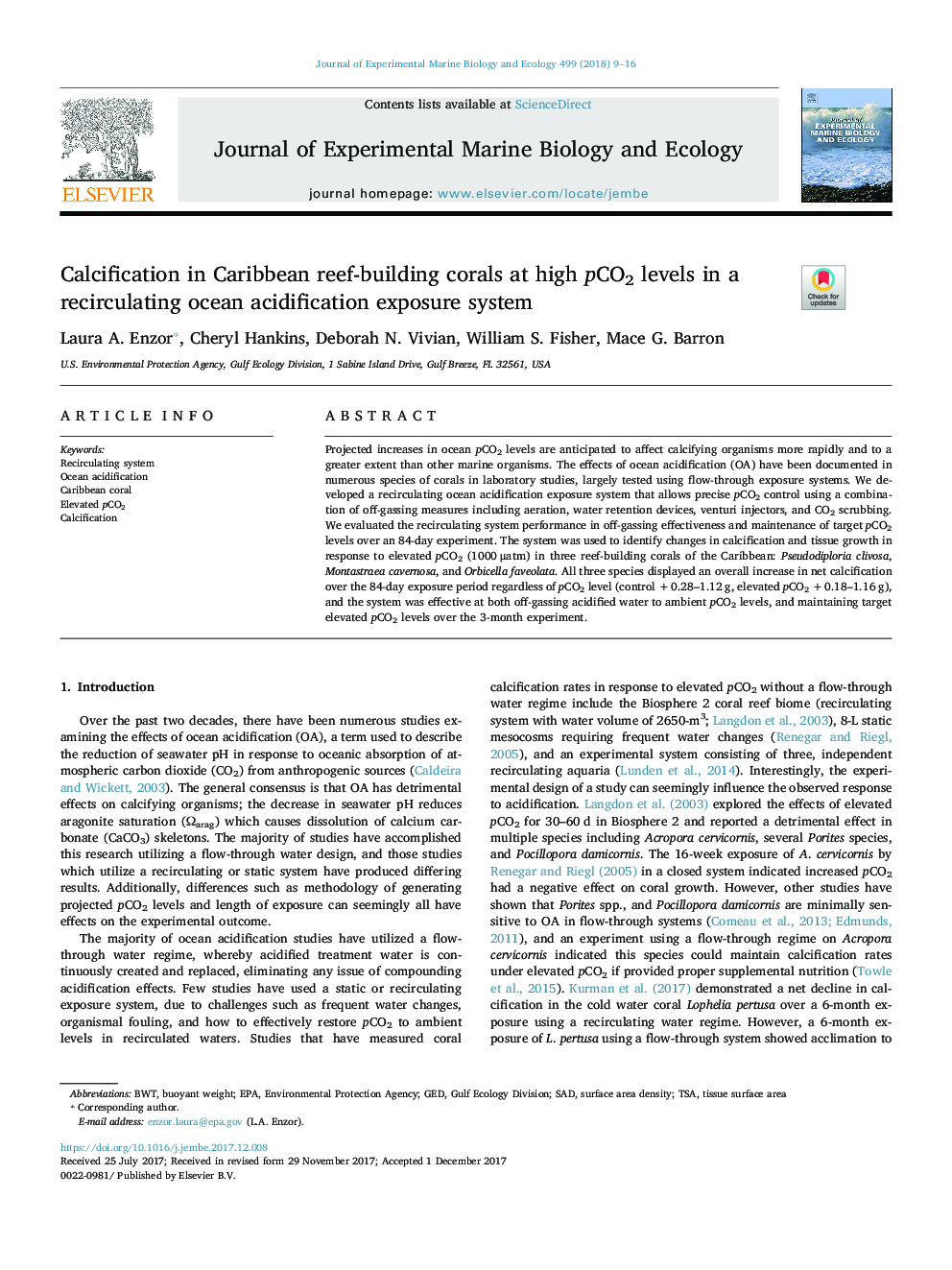| Article ID | Journal | Published Year | Pages | File Type |
|---|---|---|---|---|
| 8849017 | Journal of Experimental Marine Biology and Ecology | 2018 | 8 Pages |
Abstract
Projected increases in ocean pCO2 levels are anticipated to affect calcifying organisms more rapidly and to a greater extent than other marine organisms. The effects of ocean acidification (OA) have been documented in numerous species of corals in laboratory studies, largely tested using flow-through exposure systems. We developed a recirculating ocean acidification exposure system that allows precise pCO2 control using a combination of off-gassing measures including aeration, water retention devices, venturi injectors, and CO2 scrubbing. We evaluated the recirculating system performance in off-gassing effectiveness and maintenance of target pCO2 levels over an 84-day experiment. The system was used to identify changes in calcification and tissue growth in response to elevated pCO2 (1000 μatm) in three reef-building corals of the Caribbean: Pseudodiploria clivosa, Montastraea cavernosa, and Orbicella faveolata. All three species displayed an overall increase in net calcification over the 84-day exposure period regardless of pCO2 level (control + 0.28-1.12 g, elevated pCO2 + 0.18-1.16 g), and the system was effective at both off-gassing acidified water to ambient pCO2 levels, and maintaining target elevated pCO2 levels over the 3-month experiment.
Keywords
Related Topics
Life Sciences
Agricultural and Biological Sciences
Aquatic Science
Authors
Laura A. Enzor, Cheryl Hankins, Deborah N. Vivian, William S. Fisher, Mace G. Barron,
